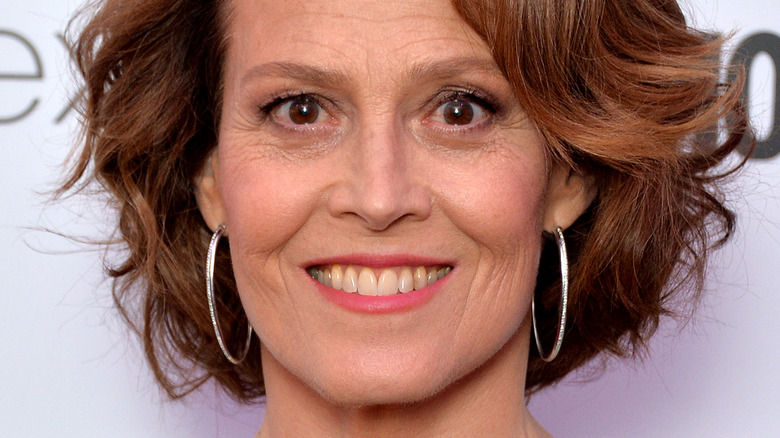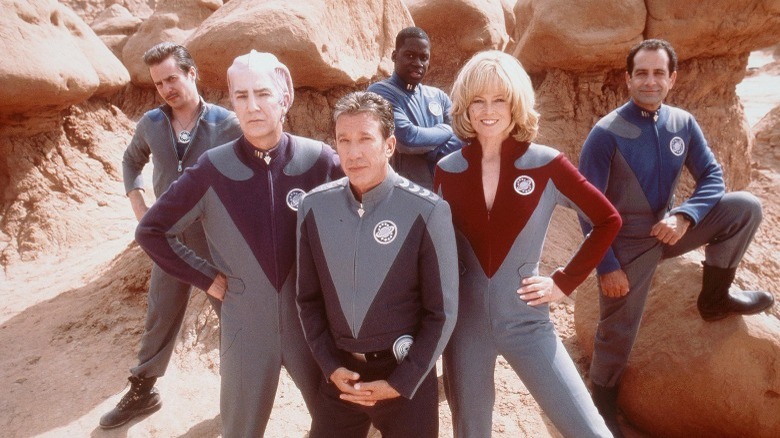Sigourney Weaver Opens Up About Why She Never Tried Her Hand At Directing
Sigourney Weaver's acting career truly defines what its means to embody range, craft, and versatility. She has demonstrated this across different mediums, including film, theater, and television, where the actor has played powerful female roles in action, science fiction, drama, and comedy. One highlight of her early chameleonic disappearance into a part was the year 1988, in which she played tragic primate researcher Dian Fossey in "Gorillas In the Mist" and a strong-willed yet ultimately villainous business executive in "Working Girl." Weaver received both best actress and best supporting actress Academy Award nominations respectively for those films (per IMDb).
Ridley Scott's "Alien," however, changed the trajectory of her professional life and she would go on to reprise the character of Ellen Ripley in three sequels. The actor has worked with some of the most noteworthy filmmakers in both Hollywood and world cinema, including Peter Weir, Mike Nichols, Ang Lee, J.A. Bayona, and James Cameron, but she has never stepped behind the camera in all this time. Now, Weaver has finally opened up about why she has never tried directing despite years of experience in the industry.
Sigourney Weaver says Hollywood sexism turned her off to the idea of directing
In an interview with The New York Times, Sigourney Weaver got candid about why she has never directed a feature film. "Whenever I used to go to Hollywood and have to deal with these different studio heads, I was never comfortable," the New York-based actor told the publication. "I always felt incredible sexism there, and a kind of resentment that they had to listen to me because I did have this power and I was smart enough to put several sentences together." Weaver then opened up about how being made to feel uncomfortable with the resentment led to her decision not to direct to avoid the toxicity of the industry.
It was one of Weaver's comedic roles in 1999's satirical "Galaxy Quest" that ended up providing her with further insight into Hollywood's misogyny. "No matter who you were, [Hollywood] could make you feel as vulnerable as [her character] Tawny feels," Weaver said. "It was one of the reasons I made her such a babe: Babes should have all the friends in the world, but I'm not sure they feel secure about that because they think it's only skin-deep when it's not." For an actor with such wide-ranging versatility in the types of powerful, multi-dimensional characters she has played throughout the decades, it is intriguing to wonder what stories she could told us from behind the camera.

